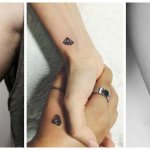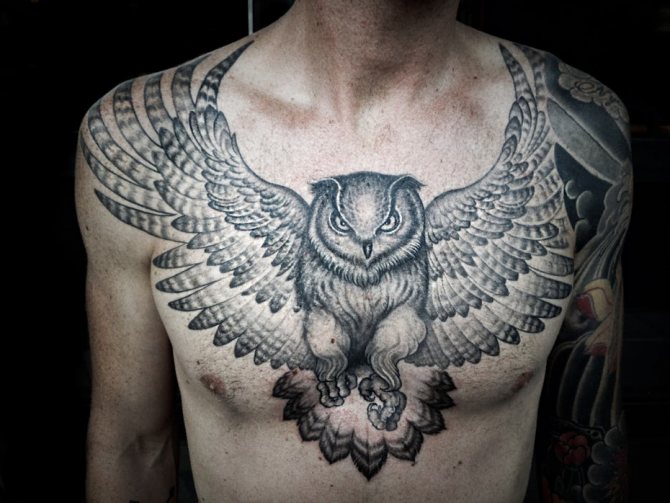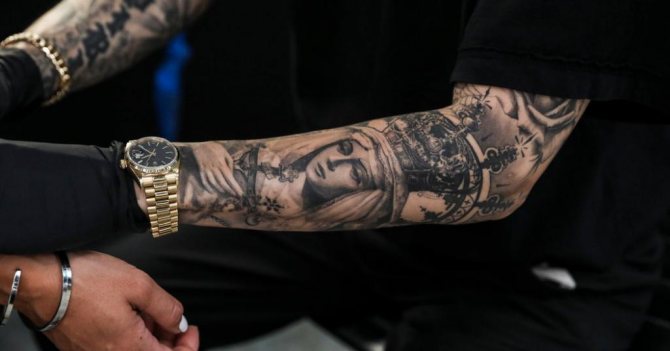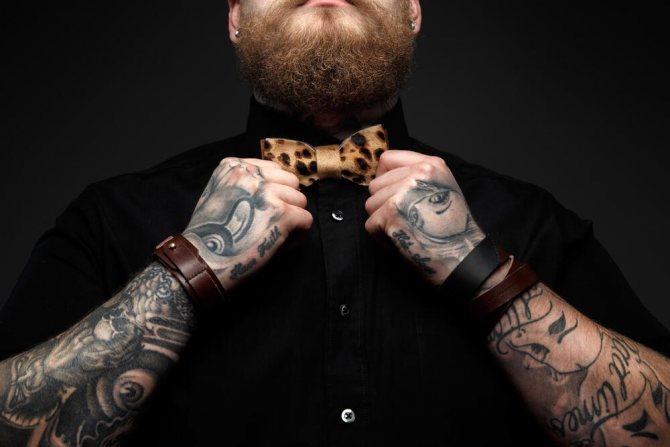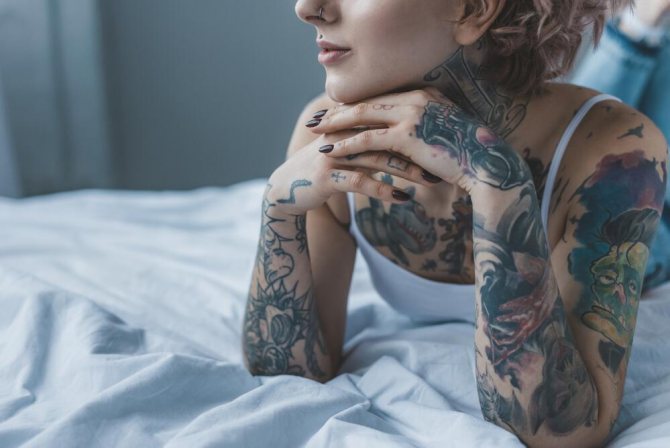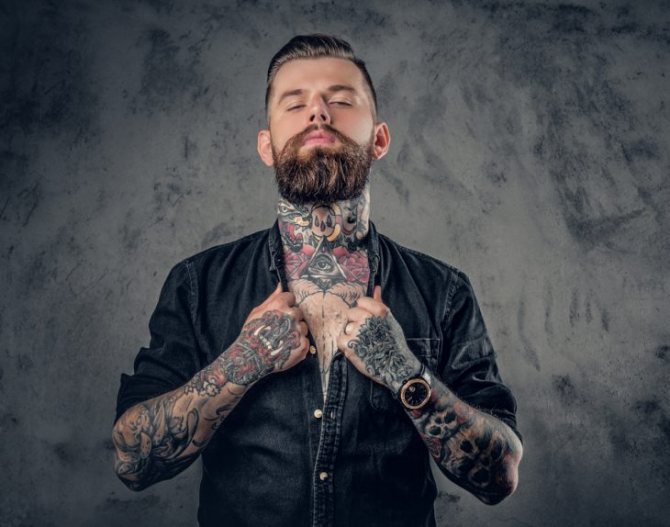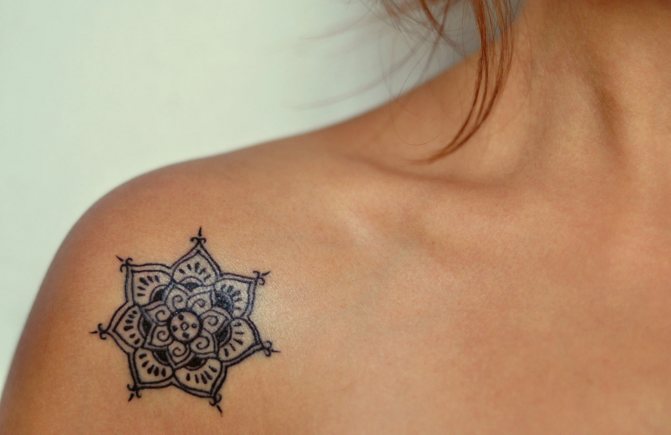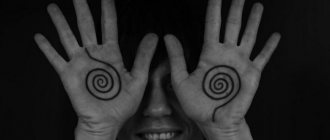- September 14, 2018
- Lifestyle
- Plugatareva Yana
Nowadays, a lot of people get tattoos, because it is beautiful and fashionable, but few people think about their meaning. Why do people get tattoos? Psychology has its own answer, which is quite interesting. It turns out that a tattoo can mean a certain symbol that can change a person's life. Let's look at the most common reasons why people get tattoos.
What is a tattoo
People have been decorating their bodies with all kinds of patterns since time immemorial. Once such a picture contained information about the person, his social status, belonging to the tribe and so on. Gradually the function of the tattoo lost its meaning. It became simply an art form. When tattooing machines were invented, body painting became available to anyone.
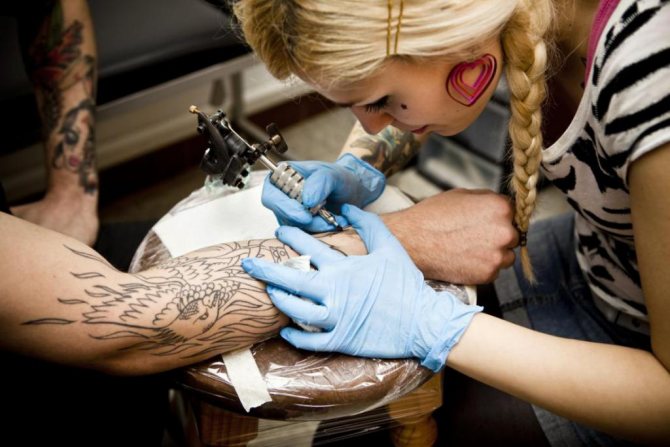
Nuances of tattoos and choosing a master
Consumable material for tattoos must be qualitative and verified (no experiments!), the office must be sterile. That means the whole surface must be treated by special means, the machine itself (the wire and the part the master holds in his hand) must be closed by special disposable film which is put on the device before each client. The same applies to all work surfaces. They must be completely sterile.
A normal master works with gloves, which he changes after each visitor, has a good reputation and will tell you a lot of advice about the process itself and its consequences.
In order to choose the right salon and the master himself, read reviews, talk to clients in social networks, learn as much information as possible about the professional and the institution itself. You can even ask for a "tour" so the tattoo master will show you how the whole process of tattooing is going.
And of course the tattoo must be cared for, so that it will "lay" normally and not give trouble.
Remember that putting a tattoo on your body is an important and responsible step. This decision must be not spontaneous, but sober and considered. Carefully approach the choice of design and the place where it will be applied. Pay special attention to the choice of a professional who will do your tattoo. If the drawing is thought out, made qualitatively and artistically, you are unlikely to ever regret it.
Why people get tattoos
In psychology there are several factors that influence the desire to make a drawing on the body. Among them are:
- The thirst for self-expression.
- The search for new sensations.
- The desire to hide flaws.
- A way to combat complexes.
- The desire to attract attention to themselves and to stand out in their social group.
As we can see, why people get tattoos, psychology explains quite well, but there is also a much more mundane reason. A person may trivialize trying with a new tattoo to overlap the previous one. The fault for the bad image can be either the master (poorly executed) or the client (did not think through the drawing). Not all people go straight to overlap the tattoo, some try to add something to the drawing to get a presentable look. More often than not, such experiments bring the client back into the master's chair, but to completely overlap the pattern.
There is a point!
What are the functions of a body painting? It cannot be that for centuries people have been painting their bodies without any meaning or idea.
The world-view function
Tattoo wearers often give them a special meaning, which allows at least in their imagination to break out of the limitations of the rest of the world.
. It is the same with smokers, for example, or any other "interest" group who are sympathetic to their "fellow" smokers and have a mild contempt for non-smokers. The non-smokers, however, pay them back in kind. The conflict between the dull-tongued and the sharp-tongued is a wonderful example of the two camps standing firmly on opposite sides of the barricades.
"Magical" Sac-Yant tattoos
Many people have what is known as magical thinking. They believe in secret symbols, signs, otherworldly forces, witchcraft, talismans, etc. Among such people the "magic" Sac Yant tattoos are immensely popular, capable of changing the fate and endowing the tattoo owner with special energetic power. In Asia it is believed that between the master, chiseled sacred tattoo by hand, and the client there is a certain spiritual connection. The master allegedly passes along with a picture of the energy that will help in the acquisition of health, harmony and other blessings of life.
However, with the advent of modern tattooing technology, the traditional school of hand-drawing has fallen into disrepair. Despite this, this method of tattooing is only gaining popularity among the Russians. Tours are organized in temples of South East Asia, people sincerely believe in magic power of the tattoo. The placebo effect works, and from this point of view we can talk about the positive meaning of such a tattoo. It takes on the meaning of conviction, one of the basic human values. Like traditional religion, belief in anything helps in overcoming difficulties of any nature, gives confidence in patronage and protection.
Compensatory function.
Compensates for limitation, dependence .
. If a person experiences oppression from social inequality, the tattoo helps to feel more significant. The psychological aspect of compensation is important - the removal of stress, the satisfaction of having a tattoo, the inclusion of oneself, albeit illusory, to those who are creative, original, not like the masses.
An insecure young man will gladly and proudly flaunt a tattoo like that of a popular singer, actor or athlete in front of his friends. This raises his self-esteem, it is as if he is saying, "Look, me and Timothy are equal."
Communicative Function
The tattoo gives us information
. For specialists it is an indicator of the inner state, the psychological position of the person. The number of tattoos, the meaning a person puts into his drawing or inscription on the body, location and other characteristics partly help in developing a working hypothesis in therapy.
It also helps those with thematic tattoos, such as magical or religious tattoos, to find "their own. For young people, having a tattoo is one way to strike up a conversation, find out common interests and "signal" that they are in the same boat.
Regulatory function
With the help of certain ideas, values, attitudes, stereotypes the management of activities and relations, consciousness and behavior of both individuals and groups is carried out. Many formations, fraternities, sects, fan clubs use tattoos as distinctive signs
of the group. Of particular importance in such communities is the system of norms, role models, and control. Joining a group gives a person the illusion of sameness and invulnerability, which certainly meets basic needs for acceptance and security.
Some people do not seek to display their tattoos in public. For them, tattoos serve as psychological protection
. Certainly, as in the case of sacred tattoos, the owners give their drawings a special meaning and elevate them to the rank of a higher power, with the only difference being that they keep them secret from prying eyes.
Integrating Function
Psychologically unites people with tattoos. But in a disintegrating way it disunites them with those who do not have tattoos. An important role in this is played by the media. Propaganda of freedom and independence, including the right to do whatever one wants with one's body, is firmly lodged in the minds of modern man. It is important to remember that people highly value the feeling of freedom. When social pressure and the frantic pace of life and stress become too much, a person can rebel.
Psychological Reactive Resistance Theory
There is a theory of psychological reactive resistance which is based on the fact that people always seek to shield themselves from infringements on their freedom. Attempts to infringe on personal freedom result in a boomerang effect (Brehm and Brehm, 1981; Nail & others, 2000). A person cannot always rebel openly, so he/she chooses "peaceful" ways. Tattoos resulting from such pressure are a vivid example of this. They inform us that a person protests, but does so in a socially adapted way.
Beautiful and not so beautiful, multicolored and monochrome, made by the skillful hands of a high-class specialist or by a home-made artisanal method, tattoos continue to delight and disappoint their owners all over the world. And if a tattoo makes its owner happier, then it definitely fulfills its function.
Useful? Share this article on Vkontakte or Facebook in 1 click!
imagepopularitypsychological attitudessamopresentationsocial statusstatustattoo
Why girls get tattoos
When we talk about the factors that influence the desire to have a tattoo, we are referring to men. Women are guided by their own logic. The most common reasons for girls are as follows:
- In the name of love. When a girl is in love, she wants to prove to her man that she is willing to do anything for him. For some, a tattoo is also part of the concept of "everything."
- This is how their beliefs manifest themselves. Mostly, teenagers suffer from this. They think that with the help of a tattoo they can defend their faith or some special views on life.
- Another reason why women get tattoos is explained by psychology as a disguise of flaws. It may be some scars or scars that do not beautify the body. But not everyone understands that stretching of scars is inevitable, so an image correction will be needed.
- Because it's fashionable. There are also people who blindly follow fashion, without thinking about the appropriateness of the action or its meaning.
- Because tattoos have girlfriends (a favorite actress or actor, a lover, and so on).
The urge to hurt oneself
- Sometimes I notice that customers do tattoos on the part of the body where it is very painful - says Natalia Panfilova. - For example, on the foot. Most likely, they want to hurt themselves on purpose. That is, the tattoo itself does not make any sense, the action - its application - makes sense.
Scientists from Novosibirsk State Medical University came to a similar conclusion (they published their study in the journal "Medicine and Education in Siberia" in 2013). Among the 60 people with tattoos who took part in the study, scientists diagnosed 78% with borderline personality disorder.
According to the paper, 2-3% of people have this disorder. They are characterized by impulsivity, low self-control, emotional instability, unstable connections with reality, high anxiety and a strong level of desocialization.
"Of interest is the fact that individuals with borderline personality disorder in 90% of cases do not feel satisfaction with the end result - the applied drawing," the study says. - They are attracted to the process itself associated with the need to endure painful feelings in the process of drawing ("can I stand it?").
The need to endure pain is a socially acceptable way of "self-harming behavior" (other ways, unacceptable, are provoking an accident or committing suicide).
At the same time, "of all the tattoo designs suggested by the tattoo parlor artist, people with borderline personality disorder preferred inscriptions or drawings related to death (skulls, dead bodies, grave crosses, etc.).
For the 13 individuals who did not have borderline personality disorder, the tattoos were much more optimistic, mostly animal designs or ornaments.
Researchers cite different reasons for self-destructive behavior. For example, in psychoanalysis, of which Sigmund Freud is the founder, it is believed that initially aggression was directed at another person, such as a parent in childhood. But the child's well-being depended on the parent, and he "decided" to redirect the aggression to himself.
Tattoos in Adolescents
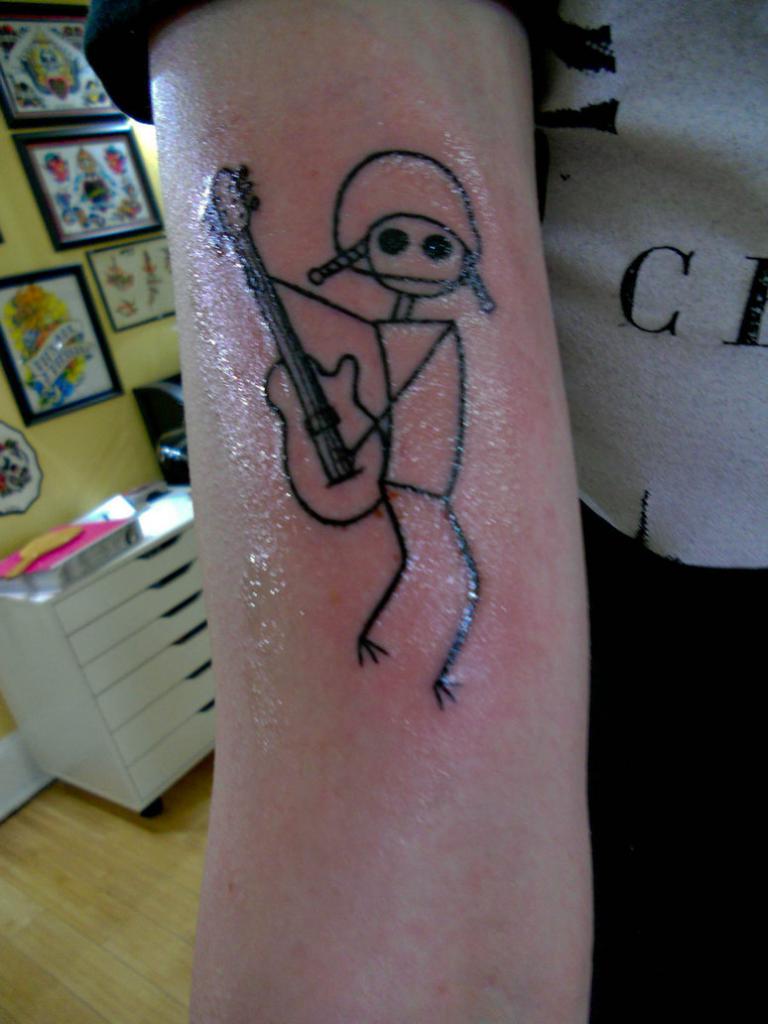

Why do young people get tattoos? Because of the desire to demonstrate their own autonomy and independence. Not the least of these is the fact that the bearer of the tattoo will sharply stand out among his peers. As soon as a teenager puts a tattoo on his body, he begins to feel superior because he has something that others do not yet have. After a while everyone gets used to his tattoo. Then the teenager makes another one, already larger or more significant. If he fails to stop in time, an innocent hobby can transform into an addiction.
Plots prompted by voices.
Read also: top 8 most influential psychologists in the world
According to Artyom Gilyov, people with mental illness often make tattoos incomprehensible to others. Sometimes even the wearer cannot explain their meaning.
Sometimes, the patient asks the tattoo artist to tattoo a plot that the "voices" tell him.
- I had a patient who was told by voices to be tattooed, "I'm afraid of the letter A."
Sometimes the images on the tattoos are quite adequate, and only when the patient explains what they mean does it become clear that he is sick.
One patient, write scientists at the Jerusalem Center for Evidence-Based Medicine, had "a giant Egyptian sign on his shin - the ankh (a T-shaped cross connected to an oval on the upper rung)." The patient explained that his tattoo meant: "I will never let myself be operated on again."
He was given painful intravenous infusions and then a clear bandage was applied that secured the needle and resembled the sign of the ankh.
"Upon taking a short leave of absence, the patient immediately went to a tattoo parlor and got said tattoo, claiming that after seeing it, 'the doctors would understand and not torture him anymore,'" the study said. - When asked why he got the tattoo on his leg, the patient stated that "doctors undress him anyway."
"Another patient diagnosed as a paranoid schizophrenic decorated his body with chaotically tattooed alphabets to show that he 'did well in school,'" the scientists continue.
Sometimes there is no logic at all in the tattoos of patients.
For example, a schizotypal personality disorder patient tattooed a primitive iconic tattoo of a lawn-mower graphic silhouette on his buttock (intimate area) for decoration purposes," the study says.
The scientists believe that "voluntary tattoos, among other non-verbal signs, can play a significant role in the diagnosis of mental and behavioral disorders, especially in cases where the subject deliberately seeks to mislead the physician."
Compensation
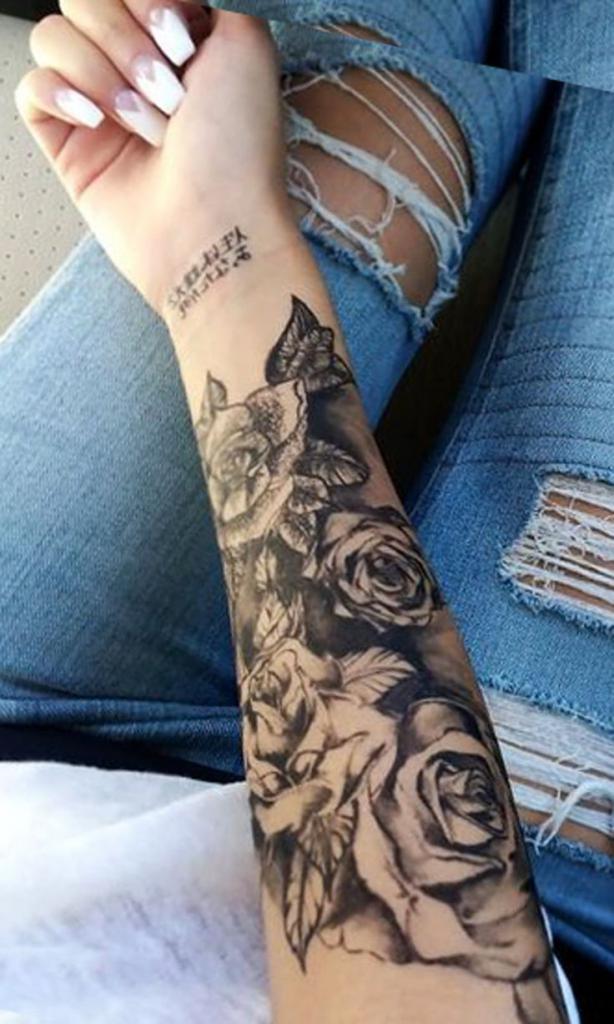

Why do people get tattoos? Psychology provides the answer to this question. A tattoo has a compensatory or complementary function. When a person decides to get a tattoo, he wants to add some character traits or emphasize the existing ones. It can be attractiveness, aggression, wisdom, leadership, freedom. Subconsciously on these principles choose tattoos both men and women. Indeed, in some cases, the tattoo helps to look more attractive. And a man tattoo can add a little brutality.
With the appearance of a tattoo, a person's self-esteem and self-confidence increases. This behavior is typical of the hysteroid type of people who may use a tattoo just to draw attention to themselves.
Is it individuality?
American psychologists have come to the conclusion that the most likely answer to the question of why one gets a tattoo lies in the desire for a confirmation of one's own importance and individuality. On the one hand, it is a way to stand out from the crowd, on the other hand, it is a way to count oneself among the other crowd, among those who already have tattoos.
Fantasies and reflections on one's own uniqueness are generated by the culture that glorifies these values. War is also designed to preserve "freedom," and thus a kind of individuality. Various businesses keep brands in people's minds, subcultures, musicians who are so often quoted on tattoos are simply making money at the expense of the audience. A tattoo, on the other hand, is meant to keep a person's sense of reality, make the personality more stable or get an emotion, like when a rock band fan puts the lines of his favorite song on his arm and feels a rush of excitement as he looks at it. Another answer to the question of why people get tattoos was interpreted by an American psychologist as a way to take refuge in safety at times in life when meaning is badly needed.
Protection
Why do people get tattoos? They try to protect their personality from external influences. Also, a person may try to "curb" those traits of his personality that displease him with a drawing on his body. The same principle can be seen in the fashion of the beard. In our world, women and men have equalized their functions, so guys try to emphasize their masculinity with a beard.


Fanaticism
Why do people get tattoos with the names of their favorite people, the name of musical bands, religious symbols? These are manifestations of fanaticism - an unhealthy feeling of love, dependence on the object of adoration. It refers to the psychological disorders of personality. Specialists do not recommend typing the names of your loved ones. If you really want to, confine yourself to initials, which can then be converted into another drawing. Feelings are fickle, a loved one may leave, and the tattoo will be an unpleasant memory in this case.


Catalyst
Why do people get tattoos? To get out of some kind of lingering condition. For many people, getting a tattoo means making some kind of decision or starting a life change. Indeed, such drawings can be a catalyst for human desires and decision-making.
Psychologists warn that such motivation can develop into an addiction. Today a person needs one thing today, so he/she has a drawing on his/her body. tomorrow he/she will need another, so a new image appears on his/her body. Eventually, a person can no longer imagine his existence without new tattoos. It becomes a disease. There are individuals (both men and women) who have tattoos that adorn every inch of skin on all parts of the body, including the face.
Low level of responsibility.
This applies to tattoos that depict religious motifs. In this way, a person is shutting himself off from reality and freeing himself from responsibility, hoping for the favor of higher forces, instead of taking action in reality. Another motivation for applying such a tattoo is additional confidence in one's powers, and that the tattoo will "work" and attract love, money, and good luck.
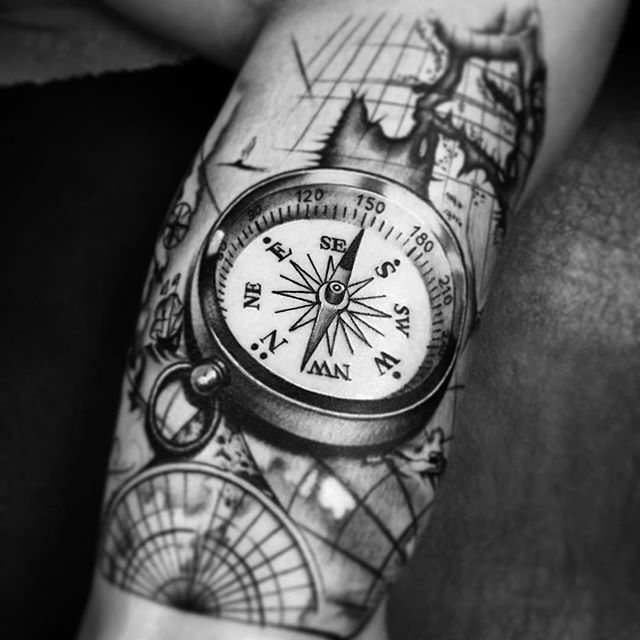

Identity
The psychology of the tattoo lies also in the fact that it helps to be identified in modern society. Now there are a lot of opportunities for realization, and therefore a person is at a loss and does not know what to do with himself. By getting a tattoo of a certain symbol or design, he can show those around him what he is. In addition, there are medical tattoos, which are applied to the body of people who suffer from certain ailments, such as asthma, epilepsy. This is done for cases of seizures so that others and doctors can immediately understand what is wrong with the person.
Psychopathic desire for order
According to Artyom Gilyov, psychopaths of the epileptoid type (one of their main traits is a morbid love of order in everything) tend to make tattoos that show the smallest details.
- For example, one patient tattooed a picture of himself out of a window," said the psychiatrist. - He poked out all the trees, all the leaves on each one. A window in the house across the street, a man in the window, a cat.
Schizophrenics also have very elaborate tattoos.
"For example, one of the patients we observed, before getting a tattoo in the form of a dragon, reviewed several tens of thousands (!) images of this fabulous character on the Internet and in the literature, until he found a drawing as close to his representation as possible," says the study of scientists from the Jerusalem Center for Evidence-based Medicine.
Social groups
In the past, tattoos were designed to make it clear to which social group a person belonged. For example, warriors had one tattoo, slaves had another. This can also include the meaning of the tattoo. Particular attention to interpretation is paid in Japan, where the bearer of the tattoo is automatically equated with a particular social group. Now some (especially teenagers) apply themselves tattoos accepted in certain circles of society to be accepted in them.
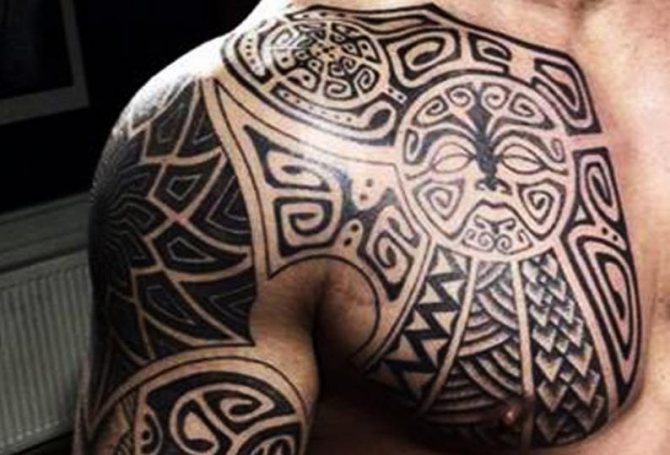

Why You Should Refuse Tattoos
There are several reasons why you should not get a tattoo. Let's list them all, and you decide for yourself whether to do a tattoo or not:
- You shouldn't get drawings on your skin when you're young. It's not even that they don't do it to minors, but that over time, your views and priorities change. You may regret the deed once committed.
- If you approach a tattoo unconsciously, over time it will begin to cause irritation. Think carefully about what should adorn your body.
- If you have skin diseases or a lot of moles, it is better not to get a tattoo. Allergy sufferers are also concerned.
- Tattoo can be done only if you feel well. Even a slight increase in temperature - the reason to refuse a visit to the master. In addition, monitor the sterility of the tools, otherwise you can get a number of unpleasant diseases.
- Getting a tattoo is painful. Of course, everyone feels different, but do not expect the procedure to be painless.
- The tattoo is quite problematic to get out. It leaves unsightly scars and stains on the skin afterwards.
- Be prepared for the fact that not all people are loyal to tattoos. Some still have the belief that tattoos are only worn by those who have been in prison.
- As you age, your skin sags, so the tattoo can lose its shape and meaning.
- Not every company's managers are loyal to tattoos. In some places, you'll simply be pointed at the door, despite all your skills and merit.
- It takes a lot of money to get a really beautiful tattoo. If you don't have it, it's better to refuse a cheap design.
- You should not exclude the possibility of allergies to paints.
- There is an opinion among doctors that tattoos reduce the immune system and contribute to skin cancer.
- Rarely do people stop at one tattoo, many become addicted to the natal drawings.
